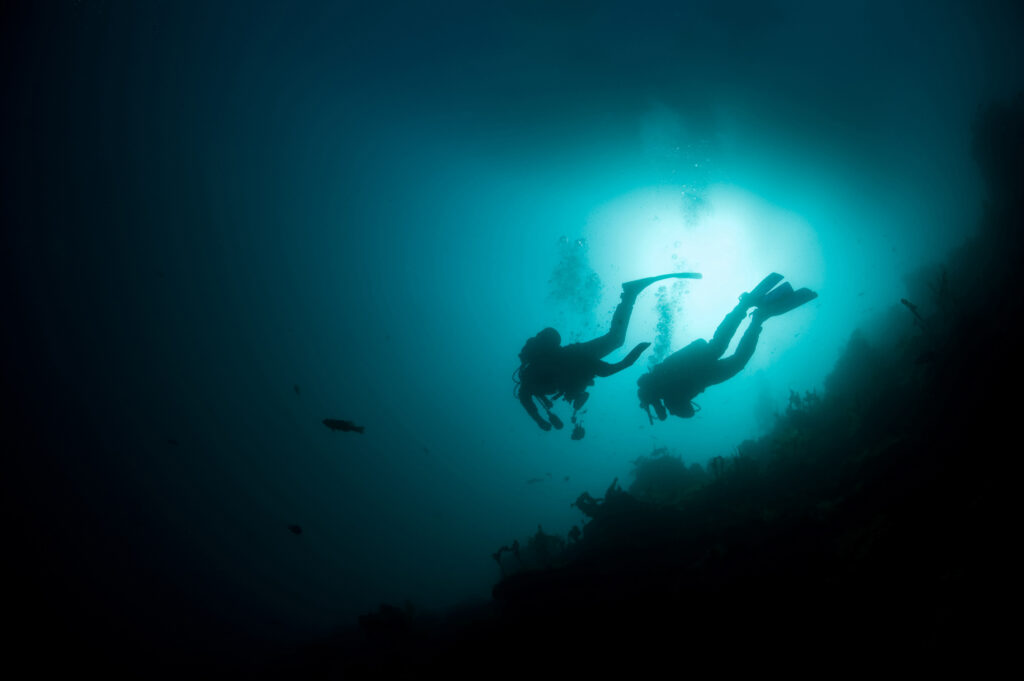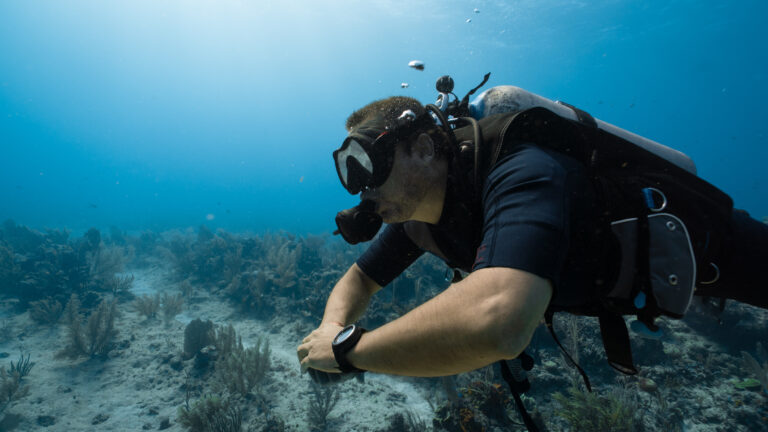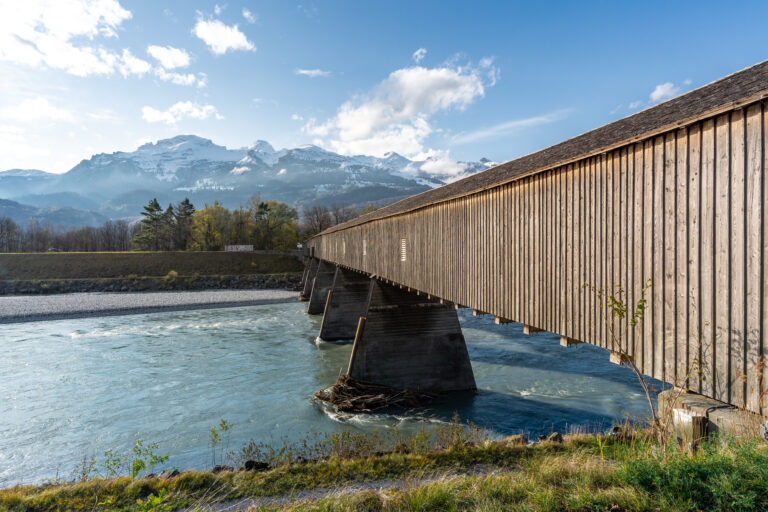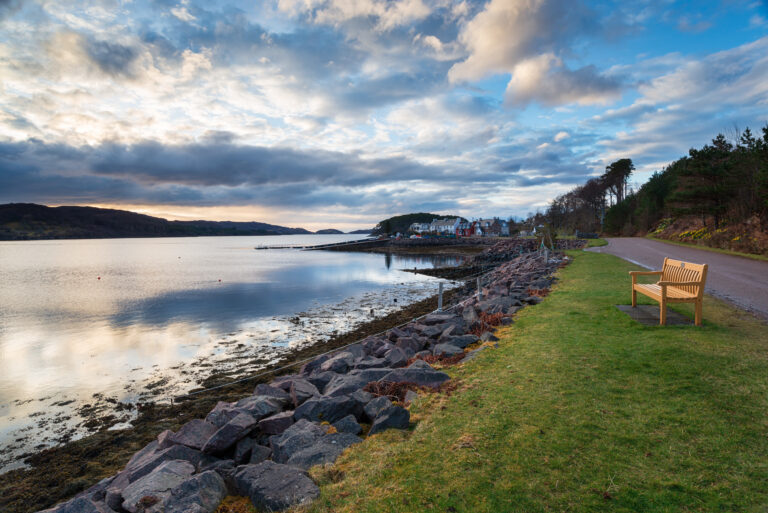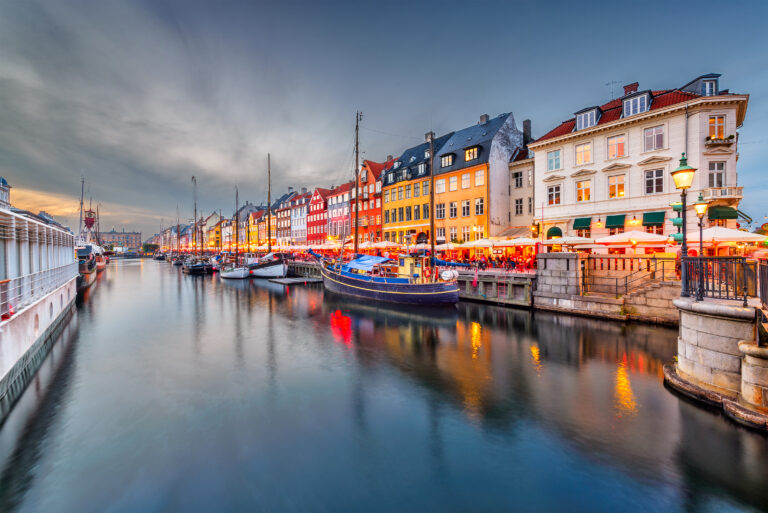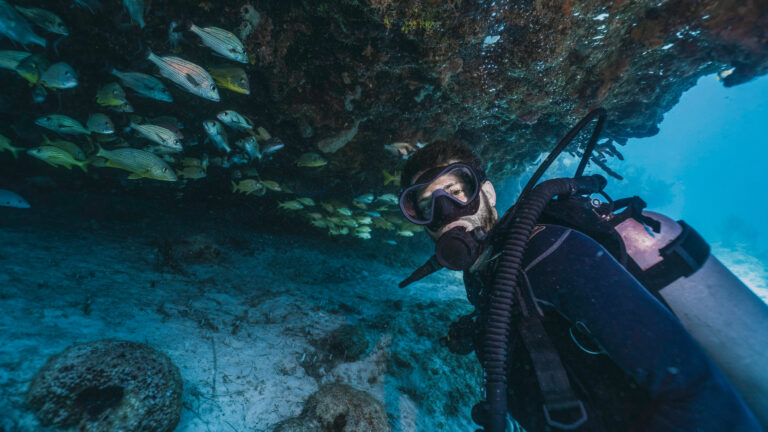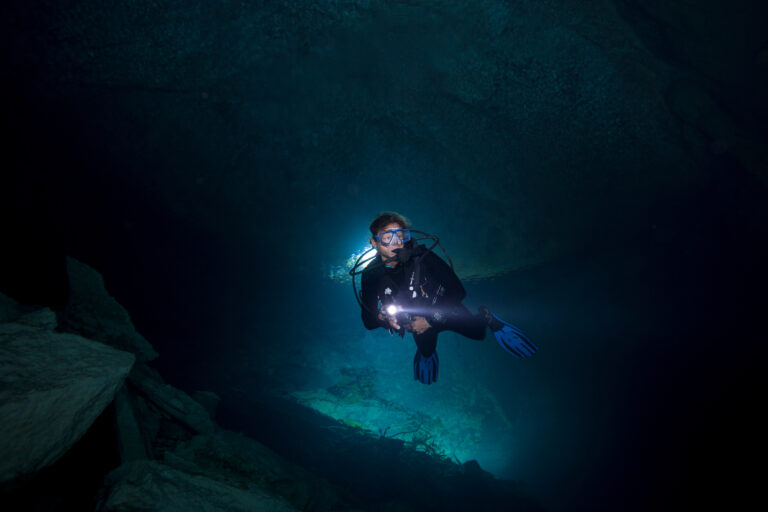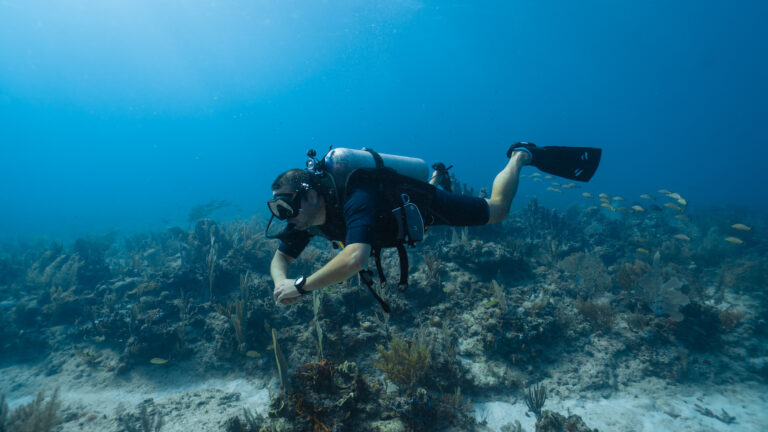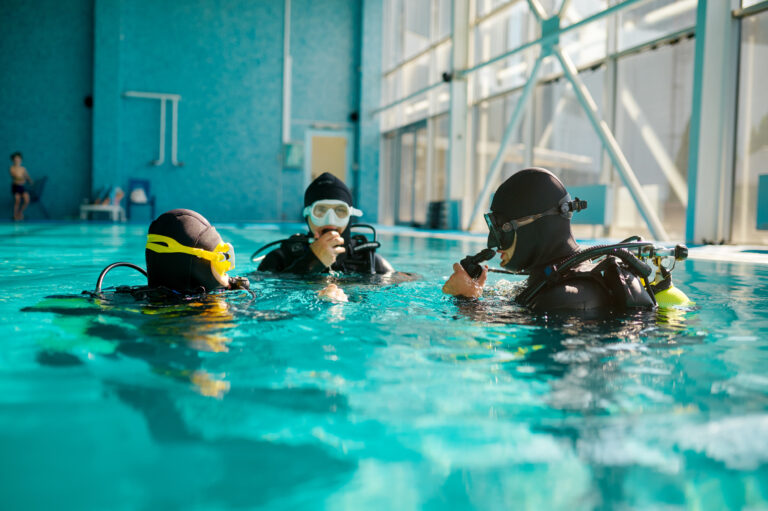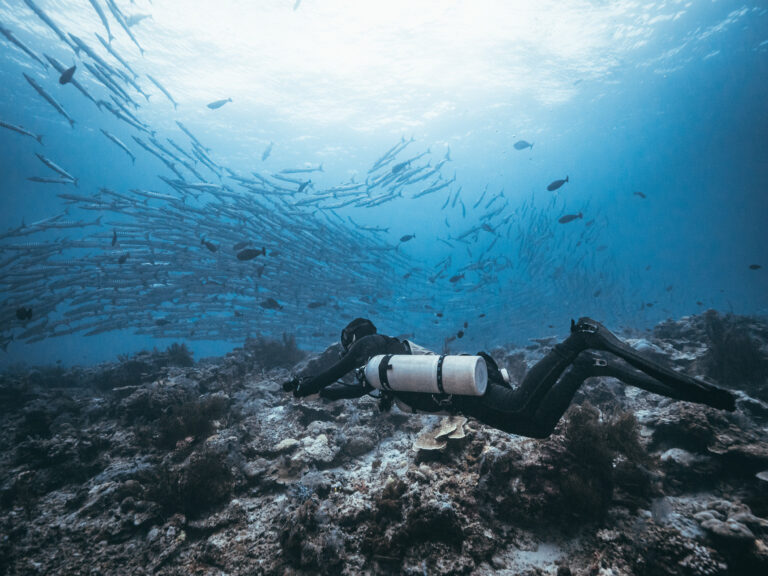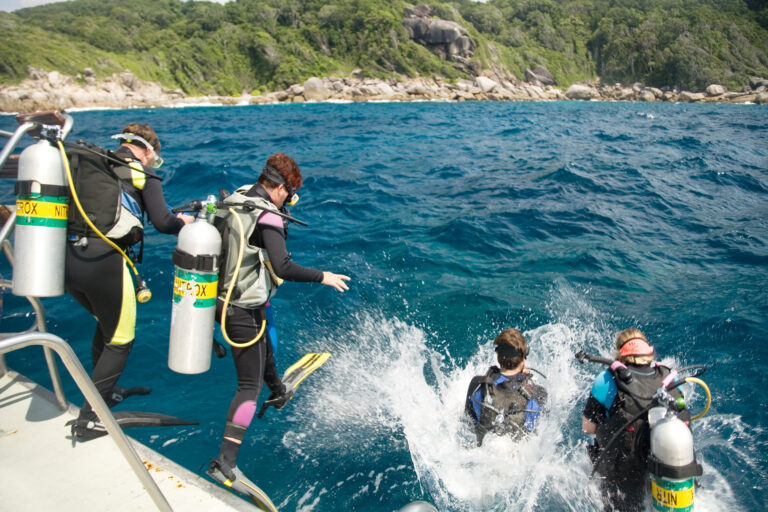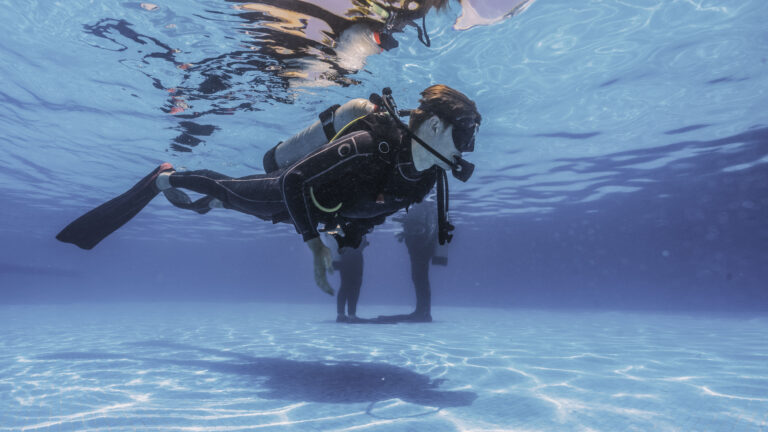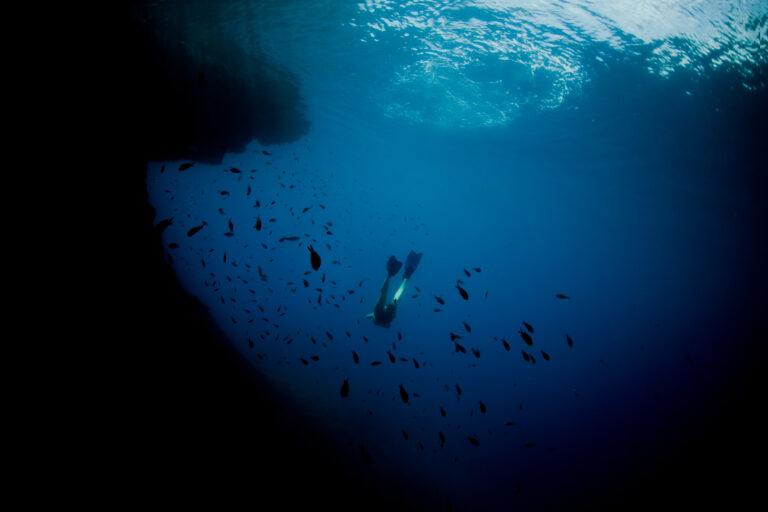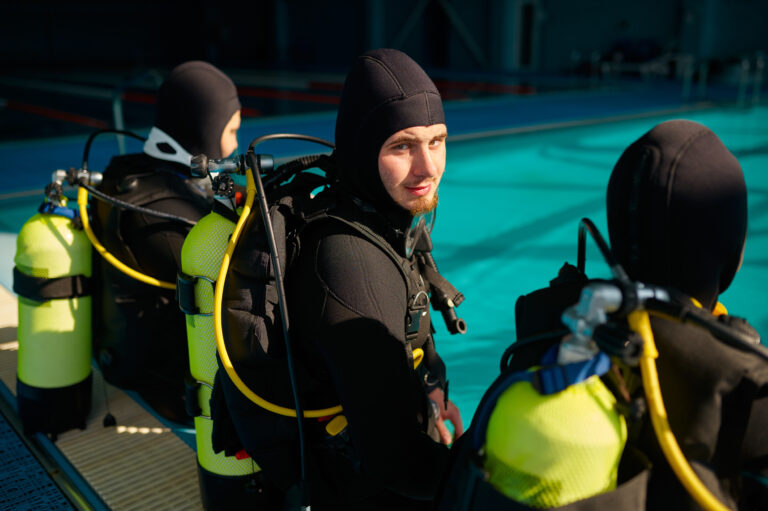SCUBA DIVERS’ TRAVEL GUIDE TO Northern Ireland
Northern Ireland is a hidden gem for scuba diving enthusiasts, offering a variety of dive sites along its stunning coastline. From shipwrecks and caves to reefs and kelp forests, there is something for every level of diver to explore and enjoy. You can dive with seals, dolphins, lobsters, crabs, and even basking sharks in the clear and rich waters of the Irish Sea. Whether you are a beginner or a pro, you can find a friendly and professional diving club or school in Northern Ireland that will help you discover the underwater wonders of this beautiful country. Northern Ireland is waiting for you to dive in and experience its amazing marine life and history.
LOCATION AND GEOGRAPHY
Nestled in the northeastern corner of the island of Ireland, Northern Ireland boasts a rugged coastline that stretches over 200 miles along the North Atlantic Ocean and the Irish Sea, offering a unique and often overlooked scuba diving experience. The region’s geographical diversity includes dramatic underwater landscapes such as Strangford Lough, a large sea loch that is home to an array of marine life and historic wrecks, and Rathlin Island, with its nutrient-rich waters that attract an abundance of aquatic species. Divers in Northern Ireland can explore a variety of sites, from the submerged cliffs and caves of the Causeway Coast, famous for the Giant’s Causeway, to the shipwrecks that lie in the deeper waters off Malin Head, the northernmost point of the island. The interplay of cold Atlantic currents and warmer waters from the south creates a unique marine ecosystem, making Northern Ireland a destination that offers both ecological richness and a glimpse into the maritime history etched beneath its waves.
VISA AND ENTRY REQUIREMENTS
When planning a scuba diving trip to Northern Ireland, it is essential to understand the visa and entry requirements to ensure a smooth journey. As part of the United Kingdom, Northern Ireland follows UK visa policies. Travelers from the European Union (EU), European Economic Area (EEA), and Switzerland can enter without a visa and stay for up to six months. Visitors from the United States, Canada, Australia, and many other countries are also granted entry for up to six months without a visa for tourism purposes, which includes scuba diving adventures. However, nationals from countries not under the UK visa exemption program must apply for a Standard Visitor visa before arrival. It’s important to check the latest information from the UK government’s official website or consult with the nearest British embassy or consulate as visa requirements can change. Additionally, ensure your passport is valid for the duration of your stay. Upon arrival, have your return ticket and proof of sufficient funds for your stay ready, as immigration officers may request them.
GETTING TO Northern Ireland
Getting to Northern Ireland for an unforgettable scuba diving adventure is a straightforward journey for travelers. The region is served by two main airports: Belfast International Airport and George Best Belfast City Airport, which offer both international and domestic flights. Visitors can also fly into Dublin Airport in the Republic of Ireland and take a short drive or bus ride north to cross the border. For those preferring sea travel, ferry services operate from Scotland and England, docking at ports such as Larne and Belfast. Once in Northern Ireland, the country’s compact size means that the scenic dive sites along the rugged coastline are easily accessible by car or public transport. With well-maintained roads and clear signage, divers can reach the underwater wonders of the North Channel, where the Atlantic waters teem with marine life, historic shipwrecks, and dramatic underwater landscapes, all within a few hours of arrival.
BEST TIME TO DIVE
The best time to scuba dive in Northern Ireland is generally from May through September when the water temperatures are slightly warmer, ranging from 10°C to 15°C, and the visibility is at its peak, often exceeding 10 meters. During these months, the Irish Sea’s rich marine life is most active, and divers can enjoy encounters with an array of creatures such as seals, lobsters, and various fish species amidst the kelp forests and wrecks. Although diving is possible year-round, the winter months can be challenging due to colder water temperatures, which can drop below 8°C, and less predictable weather conditions, which may affect visibility and sea states. Divers should also consider the local tidal schedules, as some dive sites are best explored at slack tide. Regardless of the season, it is essential to have appropriate thermal protection, such as a drysuit, to ensure comfort and safety while exploring the underwater landscapes of Northern Ireland.
ACCOMMODATION OPTIONS
In the verdant landscapes of Northern Ireland, scuba divers will find a variety of accommodation options to suit their needs and preferences. From the rugged coastline of County Antrim to the serene waters of Strangford Lough, divers can choose to stay in charming bed and breakfasts that offer a warm, local experience, often with hosts who can share insider tips on the best dive spots. For those seeking a touch of luxury, there are upscale hotels and resorts, some of which provide tailored dive packages, including gear rental and boat charters. Self-catering cottages and holiday homes are available for groups and families who desire more space and privacy, often situated close to popular dive sites like the historic wreck dives off Rathlin Island. Budget-conscious divers can opt for hostels or campsites, particularly in areas near the Causeway Coast, where the natural beauty adds to the allure of the diving adventure. No matter the choice, divers will find themselves immersed in the rich culture and stunning scenery that Northern Ireland has to offer, both above and below the water.
DIVE OPERATORS AND DIVE SHOPS
In the cool, emerald waters off the rugged coast of Northern Ireland, dive operators and dive shops serve as gateways to an underwater realm rich with marine life and historical wrecks. These local establishments, often staffed by passionate divers with intimate knowledge of the local seascape, offer a range of services from equipment rental and air fills to guided dives and PADI-certified training courses. Whether you’re a novice diver looking to earn your first certification or an experienced underwater explorer seeking the thrill of diving the historic HMS Drake wreck in Rathlin Island, Northern Ireland’s dive shops cater to all levels of expertise. They prioritize safety and environmental stewardship, ensuring that the region’s aquatic treasures can be enjoyed by generations to come. With their friendly service and expert guidance, these dive operators not only equip you for the physical dive but also immerse you in the local diving culture, sharing tales of hidden dive spots and the mysterious creatures that inhabit them.
TRANSPORTATION WITHIN Northern Ireland
In Northern Ireland, transportation options for scuba divers are convenient and varied, ensuring easy access to the country’s stunning underwater landscapes. Most divers arrive via the capital, Belfast, or Londonderry, which are served by airports with connections to the UK and Europe. From these entry points, renting a car is the most flexible way to reach the prime dive sites along the rugged coastline, such as the popular Strangford Lough or Rathlin Island. The well-maintained roads offer scenic drives and the freedom to explore at your own pace. For those preferring public transport, Northern Ireland’s bus and train network, operated by Translink, provides reliable services to coastal towns, though reaching specific dive spots may require a taxi or a local shuttle arranged through dive operators. Additionally, some dive shops offer their own transport solutions for divers, including pick-ups from your accommodation and transport to the dive boat, ensuring a hassle-free diving experience amidst the rich marine life of Northern Ireland’s waters.
CURRENCY AND PAYMENT METHODS
When traveling to Northern Ireland for scuba diving adventures, it’s important to note that the currency used is the British Pound Sterling (£). Credit and debit cards are widely accepted, especially Visa and MasterCard, and you’ll find ATMs readily available in cities and larger towns. However, when visiting remote dive sites or smaller villages, it’s advisable to carry some cash as smaller establishments may not accept cards. Contactless payments are also common, but there may be a limit on the transaction amount. It’s worth mentioning that while Northern Ireland is part of the United Kingdom, if you’re crossing over from the Republic of Ireland, you’ll need to switch from using the Euro to Pounds. Currency exchange services are available at airports, banks, and post offices, but for the best rates, consider exchanging money before you travel or withdrawing directly from ATMs. Always inform your bank of your travel plans to avoid any potential issues with card usage abroad.
LANGUAGE AND COMMUNICATION
When diving in Northern Ireland, communication both above and below the water is predominantly conducted in English, which is the local language. Divers from around the globe will find it convenient to arrange dives, understand safety briefings, and engage with local dive operators. It’s important to familiarize yourself with the specific diving terminology and hand signals used universally among divers for underwater communication, as these are critical for safety and coordination with your dive buddy and guides. While the Northern Irish accent can be distinct and at times challenging for non-natives to understand, the diving community is known for its friendliness and willingness to clarify and assist. In the event of language barriers, dive centers often provide materials and assistance in various languages to ensure all divers are well-informed and comfortable. Additionally, knowing a few phrases of the local Irish Gaelic could be a charming way to connect with the local culture, although it’s not necessary for diving activities.
LOCAL CULTURE AND ATTRACTIONS
Northern Ireland, with its rugged coastlines and clear waters, offers more than just exceptional scuba diving experiences; it is a land steeped in rich history and culture. After exploring the underwater marvels, divers can immerse themselves in the local culture by visiting the Giant’s Causeway, an awe-inspiring natural wonder steeped in myth and legend. The vibrant city life of Belfast, with its Titanic Quarter, showcases the shipbuilding heritage and the tragic story of the RMS Titanic. Music lovers can revel in traditional Irish folk music in cozy pubs, while history enthusiasts can wander through the medieval Dunluce Castle ruins that teeter on the cliff edge. The warmth of the Northern Irish people, coupled with their storied past and lively present, makes the surface intervals between dives as enriching as the underwater adventures. Whether it’s savoring the local seafood, joining in a spirited ceilidh, or tracing the footsteps of ancient kings and modern-day heroes, Northern Ireland’s cultural tapestry is as captivating as its marine treasures.
CULTURAL ETIQUETTE AND TIPS
When scuba diving in Northern Ireland, it’s important to approach the experience with a sense of cultural sensitivity and awareness. The Northern Irish are known for their warm hospitality and friendly demeanor, but it’s courteous to respect local customs and traditions. Always ask for permission before entering private land to access dive sites, and be mindful of the historical significance of certain underwater locations, such as shipwrecks, which may be considered war graves. It’s customary to engage in a bit of friendly chat with locals, who may offer invaluable advice on the best dive spots or weather conditions. Be sure to support the local economy by hiring equipment from nearby dive shops and partaking in the services of local dive guides. Additionally, environmental conservation is taken seriously; ensure that you follow all guidelines to protect marine life and habitats, such as not disturbing wildlife or taking souvenirs from the sea. Lastly, Northern Ireland weather can be unpredictable, so heed local advice on when it’s safe to dive, and always prioritize safety over adventure.
LOCAL LAWS AND REGULATIONS RELEVANT TO TOURISTS
When planning a scuba diving trip to Northern Ireland, it is essential for tourists to familiarize themselves with local laws and regulations to ensure a safe and lawful experience. Divers should be aware that they must obtain a diving permit from the relevant local authority if they wish to dive in certain protected areas, such as Strangford Lough, which is a Marine Conservation Zone. Additionally, the use of dive flags is mandatory to alert boats to the presence of divers below. It is also important to respect fishing regulations, which may restrict diving activities in certain areas during specific times to protect marine life. The removal of historical artifacts from wreck sites is strictly prohibited under the Historic Monuments and Archaeological Objects (Northern Ireland) Order 1995, and divers should be cautious not to disturb such sites. Lastly, divers should ensure they are compliant with the regulations set by the Maritime and Coastguard Agency, including those pertaining to the safety and communication equipment required for diving operations. Always check for the most current regulations before your dive, as these can change and may vary depending on the specific location within Northern Ireland.
SAFETY TIPS AND EMERGENCY CONTACTS
When diving in the waters of Northern Ireland, safety should be your paramount concern. Due to the region’s variable weather and water conditions, it is essential to check the local weather forecast and sea conditions before every dive. Always dive within your certification limits and ensure that your equipment is well-maintained and suitable for the colder water temperatures you may encounter. It is advisable to dive with a buddy and to inform someone onshore of your dive plan and expected return time. Be aware of the risks of strong currents and take local advice on safe dive sites. In case of an emergency, the Maritime and Coastguard Agency (MCGA) can be contacted on VHF Channel 16 or by dialing 999 or 112. It is also wise to have the contact details of the nearest decompression chamber, which in Northern Ireland is the Craigavon Area Hospital, reachable at +44 (0)28 3833 4444. Remember to carry a means of signaling for help, such as a whistle, surface marker buoy (SMB), or a dive alert, and always dive with a plan to manage potential emergencies underwater.
HEALTH AND TRAVEL INSURANCE
When planning a scuba diving trip to Northern Ireland, it is crucial to consider your health and travel insurance coverage. The region’s waters offer spectacular diving experiences, from the historic wreck of the SS Empire Heritage to the vibrant marine life at Rathlin Island, but diving always comes with inherent risks. Ensure that your travel insurance policy includes comprehensive coverage for scuba diving activities, as standard policies may exclude such specialized sports. Check that it covers potential hyperbaric treatment, medical evacuation, and repatriation in case of a diving-related injury or illness. Additionally, be aware of the local healthcare system: while the UK’s National Health Service (NHS) provides care, non-residents may be charged for certain services, so an adequate insurance plan is essential to avoid unexpected expenses. Always carry proof of your insurance and emergency contact information with you. By being prepared with the right insurance, you can dive into Northern Ireland’s underwater wonders with peace of mind.

